|
By Anonymous
When you’re a member of a small close-knit community, you hear things. You know things. People tell you things and you listen, because that’s what friends do. As an active member of a local LGBT community, I have many friends in different walks of life and many different situations. I have the privilege of walking alongside many transgender individuals and am often the only cisgender person in the room. It’s a really great experience, but it can be hard sometimes too. The following stories, very CliffsNotes© versions, are told to raise awareness, and hopefully let someone know that they are not alone, their experience is valid, and someone is listening. Names and certain details have been changed to protect privacy, but the stories are real. Luke and Kaia were like any other couple in our group, both in their early 20s and very much in love. Kaia was a cisgender female and Luke was a transgender male. They did everything together. When we were all out and about they were always included, and we enjoyed their company; however, around the six-month mark of their relationship, there was a shift in the dynamic. Luke seemed to be constantly depressed and Kaia seemed to be always putting him down. “Why can’t you do this? A real man could.” We heard these comments and began to make remarks, but when we started to intervene, we saw less and less of Luke. Their relationship lasted a little over a year. Luke came to us after the break-up and finally spoke about the emotional abuse he was experiencing behind closed doors. “She was always putting me down and making transphobic comments. I couldn’t see it while it was happening… but yeah it was definitely emotional abuse.” She also had a habit of using her children against Luke because she knew he was very attached to them: “I can leave, and you’ll never see the kids again,” she said, “You don’t have any rights here.” This constant emotional battering took its toll on Luke, but he wasn’t the one to end the relationship. Kaia left Luke for a cisgender male and never looked back. Luke was devastated, and it took him quite a while to get over the break up. Even when asked about it now, years later, he says, “I’m over it…yeah I’m over it…I’m sure I’m over it. It was just painful you know? I can see that emotional abuse and manipulation was happening when I look back on it now…but there are still things I miss about her…and I really miss those kids.” Aiden and Viki’s relationship was a whirlwind from the beginning. Both were happy to have found each other, as they were both transgender and it seemed to be a match that fit for both of them. Their relationship began in that hard and fast way that some relationships do, and in that same vein, the abuse in their relationship was almost immediately evident. Viki took whatever she could from Aiden: money, things, dignity… Aiden would come to talk to his friends and would express his fear of going back, “She’s going to be mad that I’m here. She hates when I talk to anyone about this. I’m getting kinda scared…she said my only way out was in a body bag.” After a couple of years, the first call to the police was made. Viki had beaten Aiden in their front yard and into the house one night. Aiden crawled to their roommates’ bedroom to get away from her and Viki left. The police were called, Viki was found, and she spent the night in jail. Aiden went to the courthouse and filed a restraining order and moved his things out of their house the next day, but when he hadn’t been seen a week later, we all knew he had gone back. This pattern of abuse escalated within the next two years. Viki took control of all of Aiden’s financials, threatened his pet, forced him into sexual encounters that he was not wanting to participate in, and she continued her onslaught of emotional and physical abuse. After a four-year relationship, Aiden left in the middle of the night with nothing but the clothes on his back and his dog. “How did I stay so long? … I knew the relationship was bad, but there were some good times that I just kept trying to get back to that didn’t really come…you know it’s funny, I still miss her a lot…I just don’t want to feel this way anymore…and I don’t want to die.” Both of these stories sound like stories I have heard from cisgender females about their male abusers, but they’re different and the same all in one. The survivors in these stories both identify as male, and it was the identified females in the relationship who were the perpetrators of the abuse. Transgender individuals are experiencing IPV in their relationships. By sharing these stories, I hope it has given someone the ability to speak up and say, “Hey…That’s happening to me too and I think I need to get some help,” “I’m not alone in this,” or “That’s happening to my friend, maybe I should reach out.” Just because we’re not thinking to give transgender folks a seat at the table, doesn’t mean they don’t deserve one. By Anonymous I’ve always enjoyed acting, and while my biggest role to date was a supporting part in a high school production, I think my greatest performance has been in my personal life. For as long as I can remember I’ve desperately tried to cover up the things about myself that aren’t perfect. When I was in middle school I once secretly bought cold medicine and hid it in my bedroom because I didn’t want anyone to know I was sick. My secrecy was fueled by shame, and I was willing to go to almost any lengths to avoid admitting I needed help. As a result I’ve gotten pretty good at hiding what I’m feeling and going through. That especially true for the abuse I experienced during my first serious relationship. It’s taken me almost five years to start to come to terms with what happened and to feel some measure of healing. Now that I feel like I’m on the other side, I’ve struggled with how to incorporate this life changing experience and the work I’ve done to heal from it into my life when no one (other than the man who abused me) knows the extent of what went on. Over the years I have told bits and pieces of my story to various people, and those who knew me when I was dating my ex-boyfriend have a general idea that the relationship was toxic and that he didn’t treat me well. I’ve sometimes felt the urge to try and get the people I’m closest to to understand what happened, but I have always had reasons to continue to hide. I worry that people will think differently of me, that they won’t understand or will judge me, or that hearing my story will hurt them. I find myself at a place now where holding onto the secrets feels like it will crush me, but taking the risk of asking someone to hear my story is terrifying. So many years later, I don’t even know how to bring up the subject. I feel like a survivor of abuse, but no one knows that I had something to survive. Then there is the constant second guessing, the thoughts in the back of my head every time I think about the relationship: “Was this really abuse?” “Am I just trying to get attention?” “Was what he did to me actually that bad?” “What about the things I did to hurt him?” “He only hit me once.” “Maybe I’m being dramatic.” Recently, I have been working with a wonderful therapist who helped me to share my story with her. For the first time I said the details of the abuse out loud; I told the story of this relationship from start to finish. I didn’t know where to start, but soon I was making connections that I hadn’t even realized existed. I had gone over these events in my head so many times, but something about putting all the pieces together in one sitting and hearing the words spoken out loud gave me a new perspective. I can’t say that I let go of all those nagging thoughts of self doubt, but for the first time I felt like I could see what had happened for what it was without the filter of my thoughts warping every detail. This is my story: I was 17 when I first started dating Caleb* and we were together on and off until I was almost 21. I was in a very dark place in my life when our relationship began. I had been sexually assaulted the year before and had been depressed; I didn’t have a lot of friends and there was a lot of talk around school that I was a slut. I was desperate for someone to tell me I was wanted and that I was worth loving, two things I did not believe about myself. Looking back, I think that Caleb recognized from the beginning that he could treat me how he wanted and I wouldn’t do much to protest. While we were still in high school our relationship seemed relatively normal. In retrospect there were red flags, but I didn’t see them at the time. Caleb made sure to let me know that his friends thought I was a whore and that he shouldn’t be dating me. He berated me for things I had done sexually before I met him and told me that my parents didn’t care about me. We broke up when I left for college. During my freshman year I made many new friends and started to build my self esteem back up. For the first time in a long time I felt confident and happy. However, I still spoke to Caleb and over spring break he told me he was in love with me for the first time. Immediately, I was hooked again. This time things were different; I think that it bothered Caleb to see me thriving socially. I wasn’t the social pariah that he had initially started dating and the power dynamics had shifted. Shortly after we rekindled our relationship he hit me during a fight (the first and only time he was physically violent toward me). One of his predominant ways of hurting me was to use sex as an excuse to be violent, and to use my sexual history to shame and demean me. He continued to remind me that his friends thought I was a slut, sometimes citing examples until I was in tears. After he hit me he claimed that he did it because he, “thought it would turn me on.” After that incident I cried constantly for several days, not because of what he did to me, but because I hurt him and made him so angry. He went as far as to use my sexual assault against me, laughing as he held me in the same position he knew I had been raped in and I begged him to stop. I can never remember refusing to have sex with him, and he made it clear that he expected me to be “ready to go,” when he wanted it. Caleb also frequently criticized me and put me down. He attacked almost every part of me including my appearance, my manners, and my intelligence. There were certain things he repeated throughout the relationship including that I “looked like I had down syndrome” and that he “wanted to spit in my face.” He hated the fact that I took antidepressants because he “didn’t want to date someone with a disease,” and at one point convinced me to stop taking my medication. He called me weak and a failure because I used medication to cope. As with so many relationships, the several months that we were in the process of breaking up were when Caleb escalated his abuse the most. He started threatening to kill himself and told me he might hurt himself if I didn’t agree to do certain things. He came to my house several times “to talk,” and instead screamed at me for several hours. At a certain point I remember feeling so tired and numb that I just sat silently while he shouted seemingly every insult he could think of. Eventually we did break up for good. I haven’t seen or spoken to Caleb in several years. Even though I still have a ways to go in healing from this relationship, sharing my story (both with a therapist and with anyone who reads this) has helped to lift some of the shame that has weighed on me for so long. To anyone who has experienced abuse, your story matters and you deserve to tell it and receive support and kindness in return. For me, sharing this part of myself has been one of the scariest things I have ever done. It has also been incredibly rewarding and has proved to be an integral part of my journey. When I was with my ex, I gradually began to speak more quietly and at a certain point I was doing little more than whispering. When I tell my story now I feel like I am speaking for the girl who could only whisper. She deserved to be heard then, and when I tell my story I feel like I am giving her back her voice. *Names and some details have been changed to protect privacy |
Archives
July 2024
CategoriesAll About Intimate Partner Violence About Intimate Partner Violence Advocacy Ambassadors Children Churches College Campuses Cultural Issues Domestic Violence Awareness Month Financial Recovery How To Help A Friend Human Rights Human-rights Immigrants International Media Overcoming Past Abuse Overcoming-past-abuse Parenting Prevention Resources For Survivors Safe Relationships Following Abuse Schools Selfcare Self-care Sexual Assault Sexuality Social Justice Social-justice Stigma Supporting Survivors Survivor Quotes Survivor-quotes Survivor Stories Teen Dating Violence Trafficking Transformative-approaches |
Search by typing & pressing enter


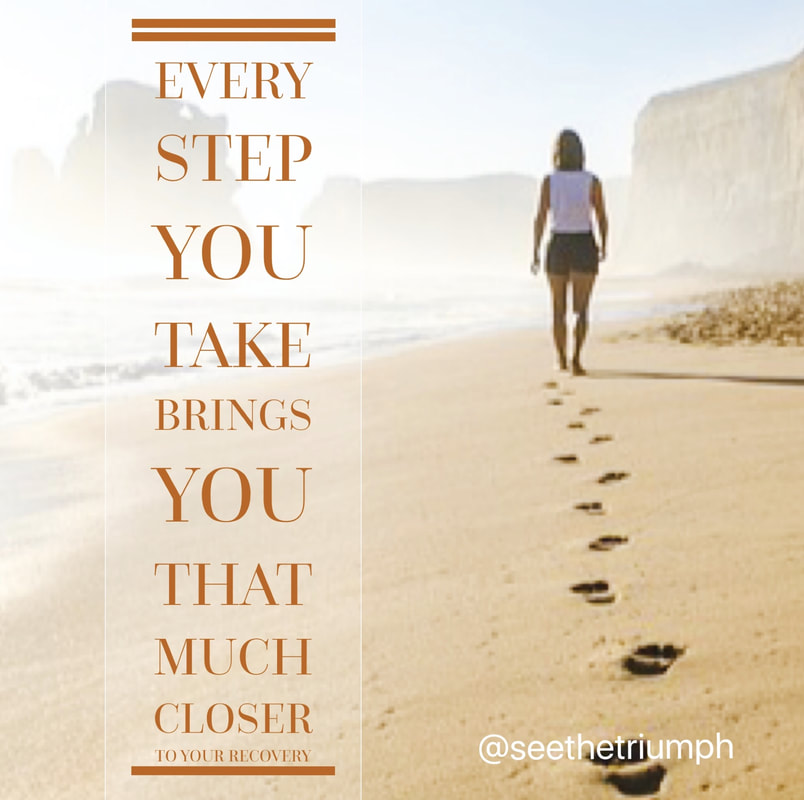
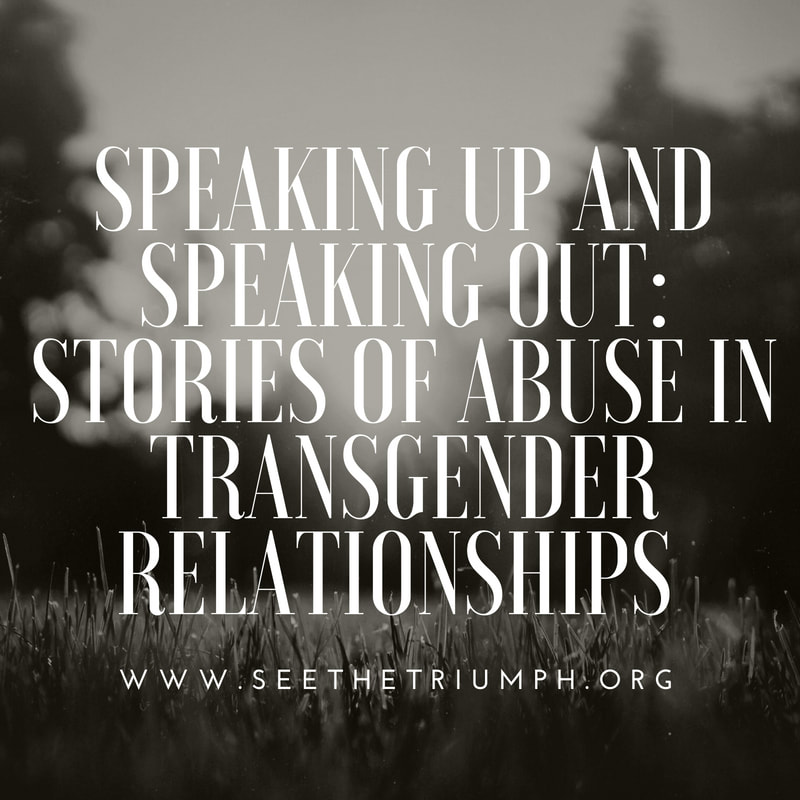

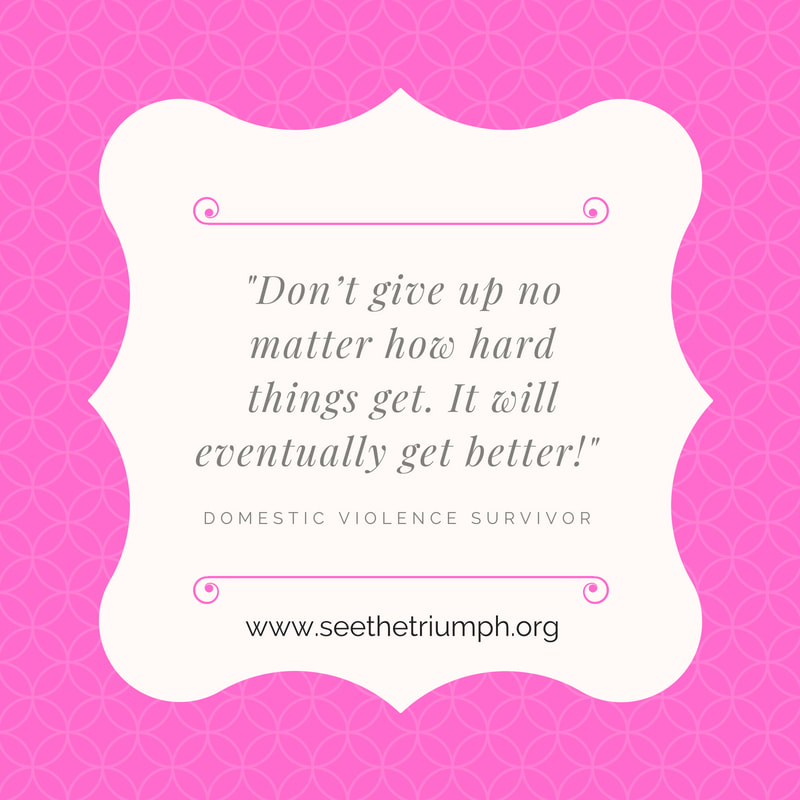

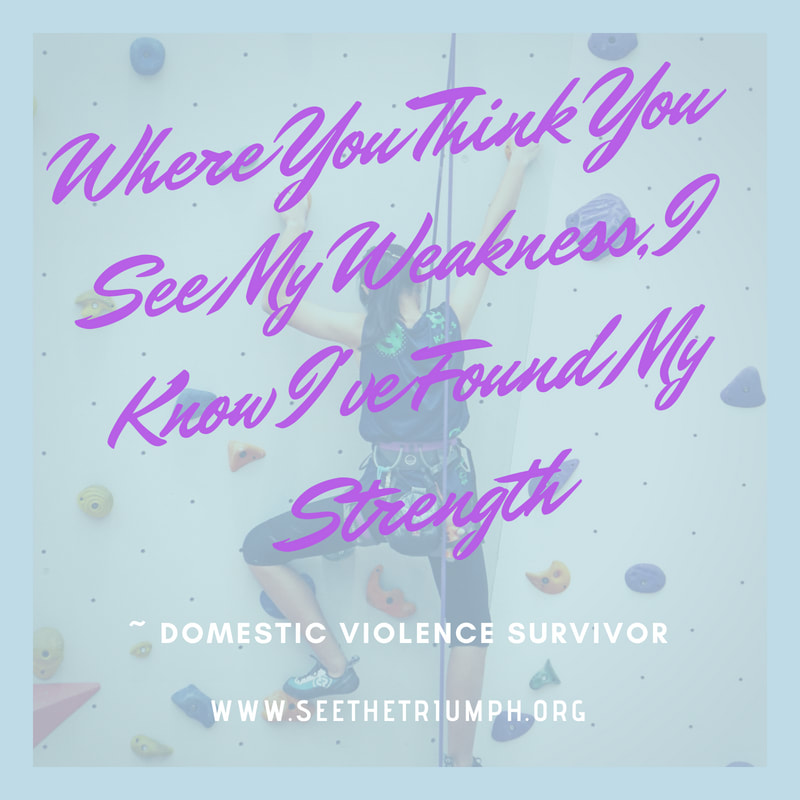
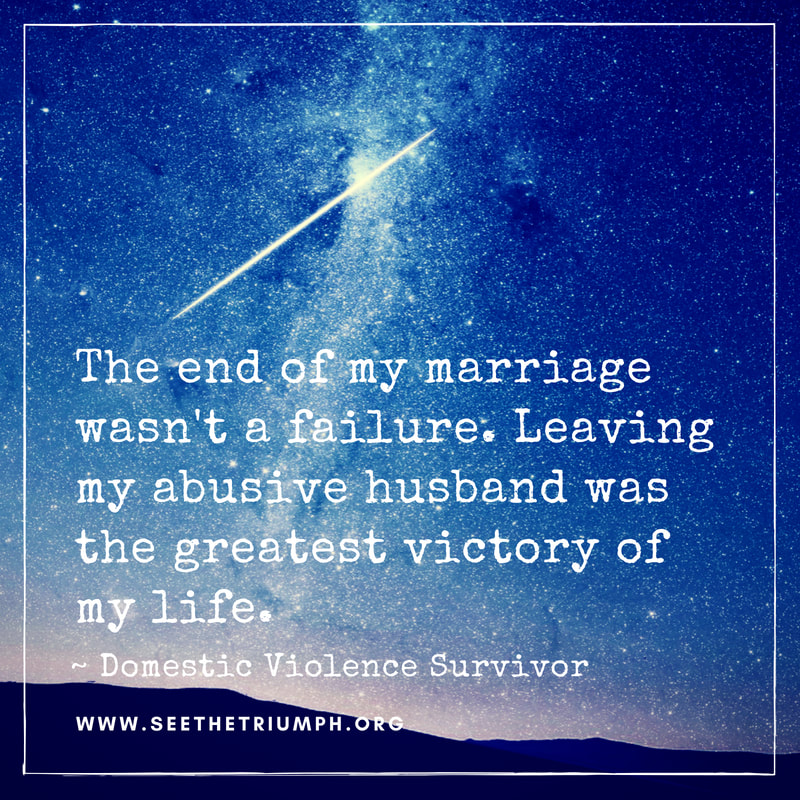
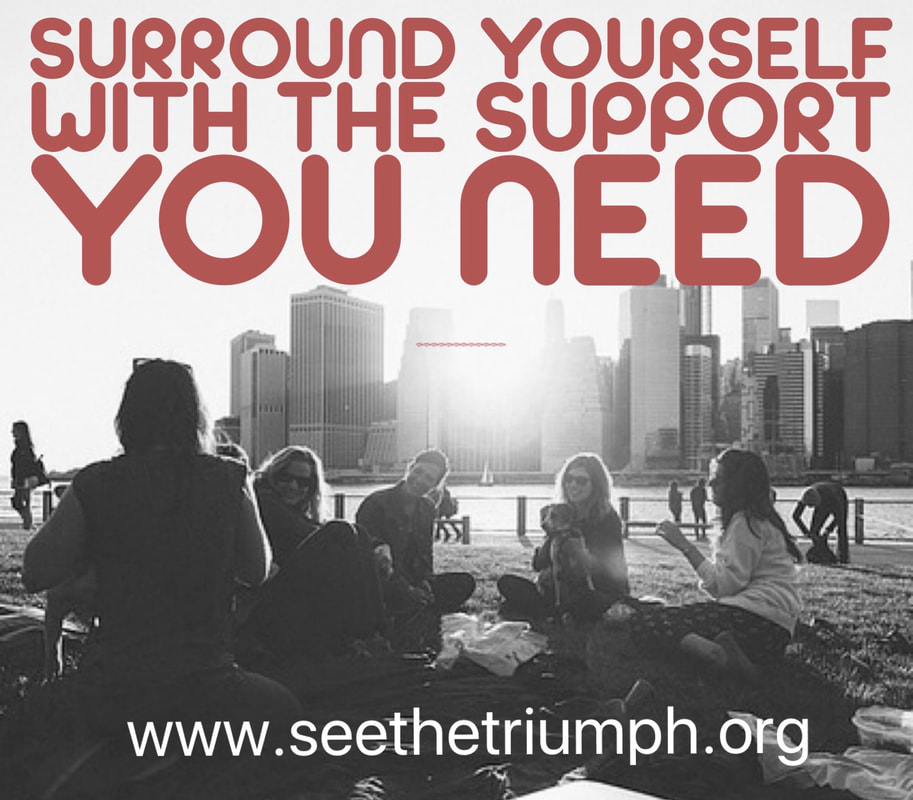
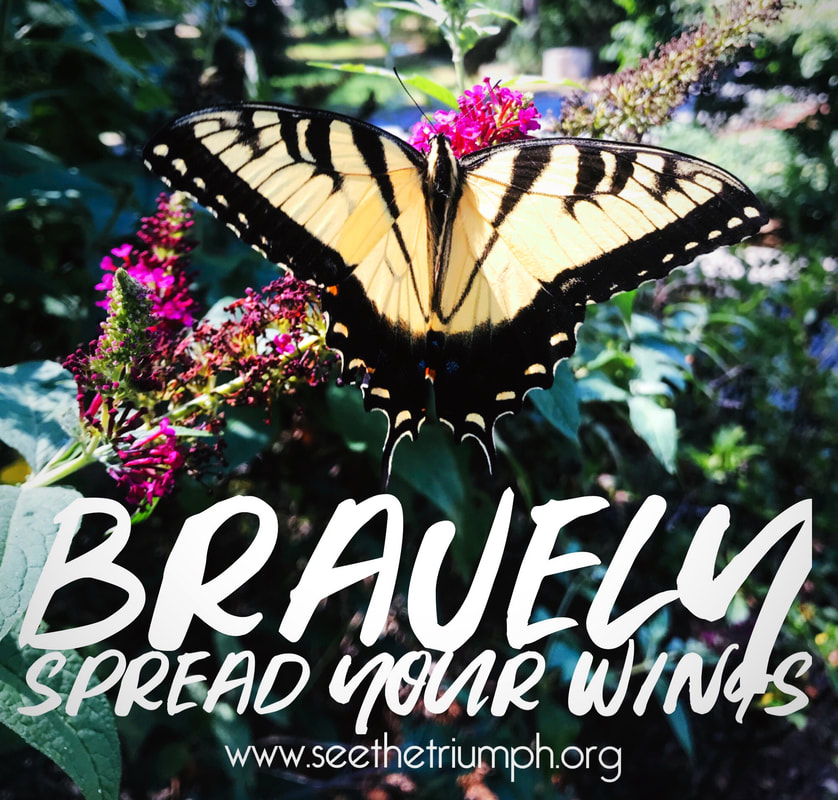
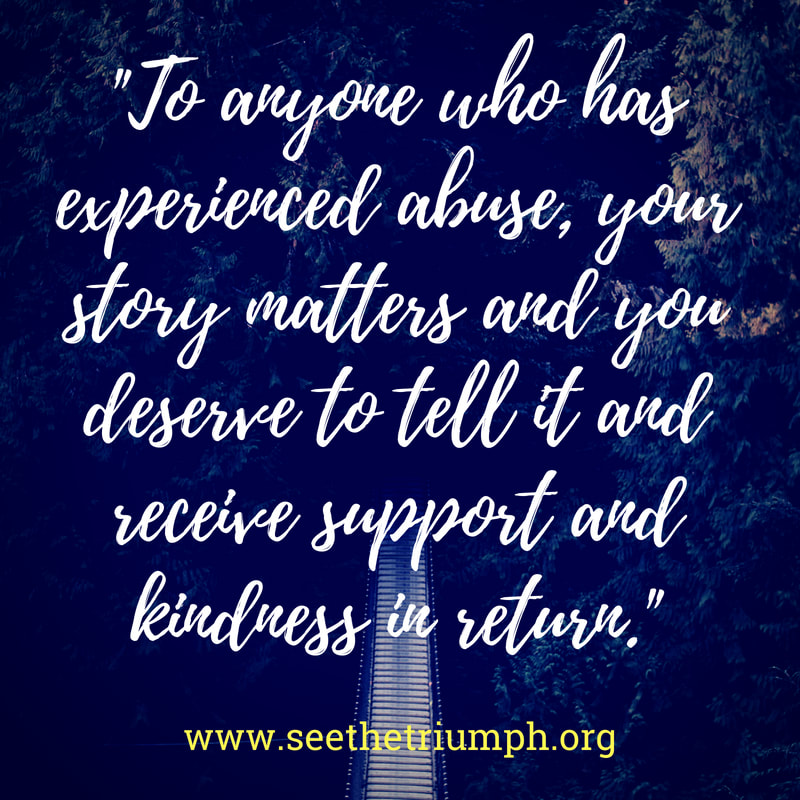
 RSS Feed
RSS Feed